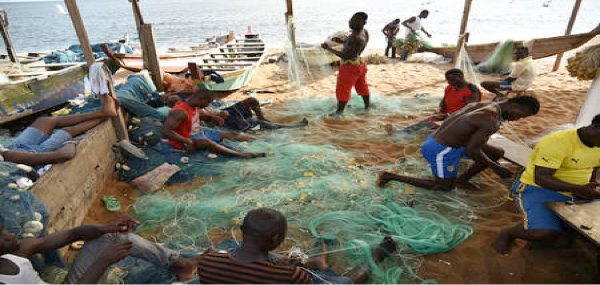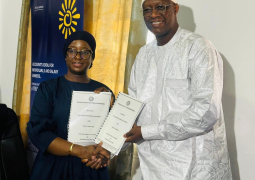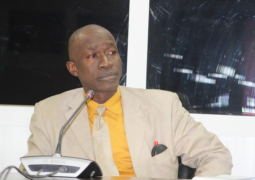
The meeting came following allegations that the fish factories are not buying catches from the local fishermen.
The meeting, organised at the Tanjai Fish Landing Site was meant to showcase and defend the interest of local artisanal fishermen, who claimed that fishmeal factories choose only to buy fish caught by foreign vessels from Senegal.
Dawda Foday Saine, secretary to the association, said challenges faced by local artisanal fishermen in the country including vendors will never be allowed in any part of the world. He added that local fishermen should first be given the priority to sell their fishes to the fishmeal factories before allowing any foreign fishing vessels.
“How can we be disadvantaged in our own country? First, even the establishment of the fishmeal factories alone in the landing site has brought a lot of argument among local dwellers regarding the scarcity of fish in the local markets. Because we do not even know how much a day these factories are consuming in terms of tonnes of fish.”
“So we will not also sit and allow the same fishmeal factories giving priority to foreign fishermen over our local artisanal fishermen. How can a fish factory be established in a country and it still refuse to buy catches from the local fishermen? And not only that, but complaints are coming from all the local fish landing sites accusing the foreign vessels for denying them sale.”
“It is because of this we converged as an association to defend the interest of local fishermen; and of course avoid fish scarcity with women who engaged in selling fish at the local markets. We are going to create MoU and other laws that will facilitate dealings between us and the fishmeal factories,” he declared.
Babanding Kanyi, the West Coast Regional Fisheries officer, stated that the operations of the fishmeal factories should first benefit the local people than foreigners, while citing the fisheries policy of the Ministry as prioritising the benefits of the local fishermen.
He added that agreement to register all foreign fishing vessels coming into the country by the various local beach management committees would help control number of boats supplying fish to the fishmeal factories.
“The ministry is in full support of the association’s efforts because this was not the first meeting we had organised. It is not fair that the fishmeal factories buy fishes of the foreign boats and reject our local fishermen. But with the coming of laws and MOUs to be effected, Gambians will now take charge of all areas involved in supplying the factories,” he said.
Read Other Articles In Headlines





